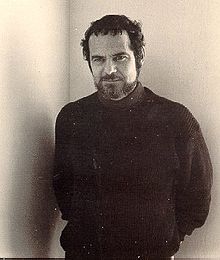The Great Noise Ensemble at the Atlas
By Stephen Brookes • The Washington Post • April 7, 2013
The Great Noise Ensemble — as you’ve no doubt picked up from the name — is one of the more playful and uninhibited classical groups in town. Specializing in music from cutting-edge young composers, the group has been putting on concerts at the Atlas Performing Arts Center this year on themes such as “irreverence” and “revolution,” and on Friday night, the performance was titled — simply but with tantalizing promise — “Revelation.” Aleksandra VrebalovThere are plenty of ways to interpret that word, and the young Serbian composer Aleksandra Vrebalov — who was on hand for the event — approached it by magnifying tiny, “micro” musical structures and compressing “macro” ones to make them comprehensible and reveal their deeper connections. Her “Transparent Walls” opened with a simple, hypnotic pulse in the electric piano, then grew in color and complexity as the ensemble joined in, floating through a dreamlike landscape before gathering in power and erupting into a powerful, almost warlike explosion of sound (complete with wailing siren), and fading back again into simplicity.
Aleksandra VrebalovThere are plenty of ways to interpret that word, and the young Serbian composer Aleksandra Vrebalov — who was on hand for the event — approached it by magnifying tiny, “micro” musical structures and compressing “macro” ones to make them comprehensible and reveal their deeper connections. Her “Transparent Walls” opened with a simple, hypnotic pulse in the electric piano, then grew in color and complexity as the ensemble joined in, floating through a dreamlike landscape before gathering in power and erupting into a powerful, almost warlike explosion of sound (complete with wailing siren), and fading back again into simplicity.
The engaging Washington-born composer Daniel Felsenfeld was also there, and he described his three-movement piano concerto, “The Curse of Sophistication,” as being about reinventing himself as an artist — working through what he called his “weird combination of haughtiness and self-recrimination.” As an exercise in personal self-revelation, it was fascinating. A searching, edgy piano (played with great style by Molly Orlando Palmiero) sometimes battled, sometimes embraced a seductive and often lush orchestral background, as if trying to break through to some urgent and elemental musical core. The lavishly gifted composer Stephen Albert died some 20 years ago at the age of 51, and his “Treestone” — a song cycle built on James Joyce’s “Finnegans Wake”— underscores what a tragedy that was.
The lavishly gifted composer Stephen Albert died some 20 years ago at the age of 51, and his “Treestone” — a song cycle built on James Joyce’s “Finnegans Wake”— underscores what a tragedy that was.
Written for soprano, tenor and small ensemble, it’s a gorgeous work, as chimerical and wildly colorful as Joyce’s own poetic meta-language, full of wit and stunning atmospherics and a riverine sense of flow. It’s a dauntingly complex work, but music director Armando Bayolo led the ensemble — as he did all evening — with precision, imagination and tangible electricity.


Reader Comments